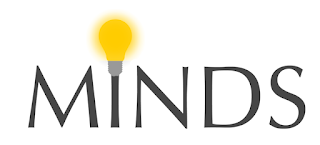If you like the idea of Facebook but aren't thrilled with their algorithms, censorship, questionable privacy and security, or willingness to assist authoritarian regimes in blocking criticism of religious ideas, you might consider checking out an alternative social media platform called Minds. It launched in 2015, but I just heard about it recently thanks to Cephus at Bitchspot.
So what is Minds and why might you consider using it instead of Facebook? According to Aaron Miles (SocialMediaToday), Minds is open source, encrypted, and has the support of Anonymous (early reports of Anonymous supporting Minds have been disputed). From what I can tell, Minds appears to be positioning itself, at least in part, as a network that values privacy, security, and the free expression of ideas more than some of its competitors. In that sense, it reminds me of Voat even though the user experience is far more like Facebook while Voat is more like Reddit.
For a detailed description of how Minds differs from Facebook, check out this post by Marc Zorn (VisionLaunch). He lists many of Facebook's problems and explains many of the ways in which Minds seeks to provide a superior alternative.
I've only been using Minds for a short time, but there are a few other differences I'd add. Minds seems to attract more non-conventional sorts, though it clearly has a more conservative/libertarian bent. I've found several artists, musicians, anarchists, and fascists. Yes, I mean people who identify themselves as fascists and not those some would call fascists because they dare to disagree with their political views. But mostly, Minds seems to be populated by people doing their own thing and not giving much of a damn what others think of them.
The biggest difference and the one that will be a deal-breaker for some is that unlike every other social media service I've tried, there does not seem to be any way to stop seeing content one does not wish to see. Of course, one can unsubscribe to people one previously subscribed to, but that does not necessarily mean one won't still see their content. Minds allows users to earn (or buy) points which can be used to boost their content. Boosted content shows up in everyone's newsfeed whether they want to see it or not, and some of it is probably not the sort of thing many people are used to seeing (e.g., nudity, anti-feminist content, crazy InfoWars-style conspiracy theories).
Based on my experience on Minds so far, I'd say that chances are quite good that one will encounter content one finds objectionable in some way. I certainly have. At the same time, there is something refreshing about seeing free expression in action and in interacting with people one might not find elsewhere. It is okay to be anonymous on Minds, and one can subscribe to whoever one wants without having to be "friends." In the end, it makes for an experience quite different from Facebook.
If Minds sounds like something you'd like to check out, setting up an account is easy. Once you have done so, you can find some basic information about how it works here.
